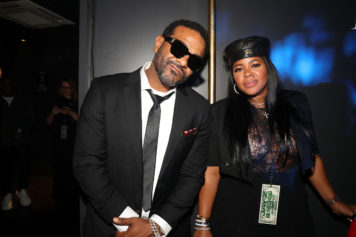When it comes to placing blame in a relationship, it’s almost always easier to see the faults in our partner than in ourselves. One of the problems with couples pointing fingers is that usually both parties are right, and both are wrong. Every person is full of flaws and certain ways. These self-protective defenses come out even stronger when we get close to someone, and old feelings start to get triggered in us in ways we don’t necessarily expect and aren’t entirely conscious of.
The many ways we get hurt throughout our lives help shape our defenses. Negative past experiences, particularly those from our childhood, leave us on guard as adults. Our defenses may warn us not to trust or open ourselves up to someone else. Or they may tell us to cling on for dear life, because we may be abandoned at any minute. The key to thriving in a relationship is getting to know and challenge our own defenses. Instead of focusing all our attention on our partner’s flaws, it’s important to look at our own limitations. How am I reacting to my partner? Am I misperceiving him/her through the filter of my “critical inner voice”? Am I projecting negative characteristics of my early caretakers onto him/her?
In improving any relationship, the focus should always be on empowering yourself. You can only change your part in the equation, but that gives you a lot of power. So what can you do to take charge and change the behaviors that are holding you back from getting closer? How can you take actions that will sustain passion, love, and respect in your relationship?
Don’t build a case. When a conflict arises, it’s easy to fuel the fire with all kinds of proof of our partner’s character flaws. One morning of forgetting to take out the trash can build into a full-blown criminal case proving our partner guilty of insufferable laziness. We may start cataloging every incident in which he or she forgot to do this or that. Case-building is a huge problem in any relationship. Once we start to see our partner a certain way, we often start perceiving (or misperceiving) their actions through a negative filter. We may start interpreting innocent comments as critical or casual behaviors as rejecting. In these cases, we can either feed our feelings of blame or try to keep a more balanced perspective about what’s going on. Again, we should try to recognize if and when we might be projecting onto our partner or acting on harmful, yet familiar patterns from our past.
Drop It. Once the blame starts going back and forth and escalating out of control, it becomes almost impossible to resolve who did what or who’s at fault. The truth is, there is never a winner in these arguments. As my father, psychologist and author Robert Firestone, says, “You may win the battle, but you will lose the war.” Keep perspective on what’s important. If your goal is really to be close again, then sometimes it’s worth just dropping the past, putting down your guard, and simply being nice to each other. Unilateral disarmament can be a first step to getting back the easy and loving flow of feelings between you and your partner. This is different from glossing over or denying your problems. It’s a matter of dropping your own reactive defenses and stopping the blame game.
Read more: PsychologyToday


